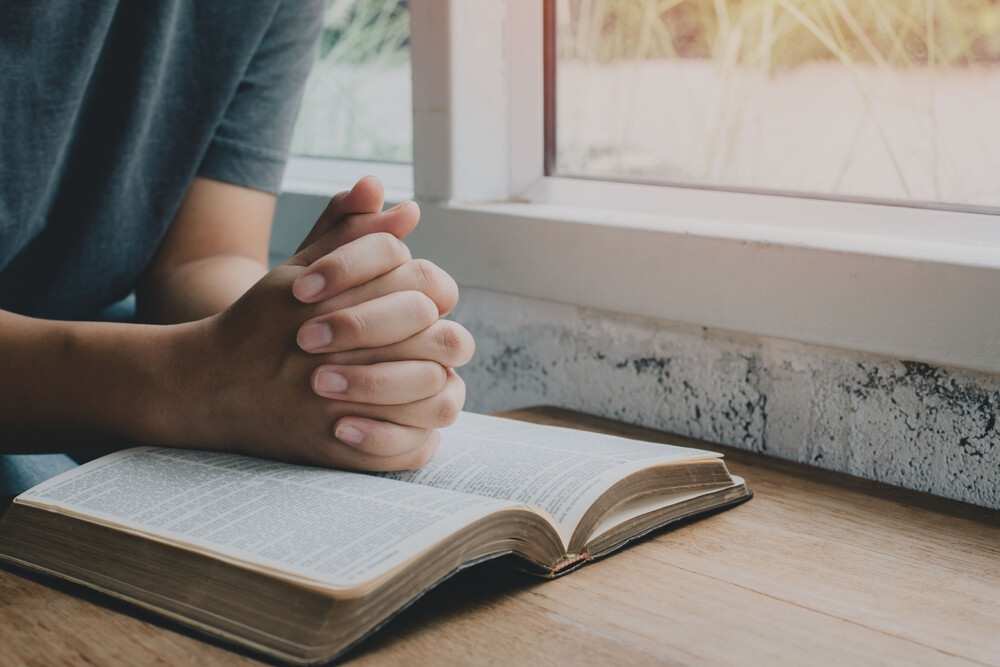
During these cold, dark, Minnesota winters, my wife, Sandie, and I like to watch BBC detective shows. A few of my favorites are Foyle’s War, Shetland, Vera, Inspector Morse, and Broadchurch. I like the accents, the unique settings, and the fact that you rarely see violence but only study the aftermath of a crime scene.
The formula is rather predictable. You begin with the crime scene, crawling with investigators clad in their pale blue protective suits so as not to contaminate the evidence. Then, in walks the lead detective, followed by his/her assistant. They bend under the yellow crime scene tape, show their badges, and then receive a briefing on what has been discovered so far.
Scene two – The lead detective visits the nearest of kin to share the terrible news that their loved one has passed away. One question is always asked, “Can you think of anyone who would want to harm your ___________ ?”
As the investigation unfolds back at the police station, they pin pictures of the victim, the crime scene, and possible suspects on a whiteboard and start postulating what happened and who was involved. You always hear three words – Means, Motive, and Opportunity.
About two-thirds of the way through a 55-minute show, you find out that the leading, most obvious suspect is removed from the whiteboard because they have an ironclad alibi or are exonerated by DNA evidence.
The detectives must always take another look at the evidence.
An exasperated group of detectives gathers around the whiteboard and the lead detective says, “Come on people, let’s take another look at the evidence!” Then, there is the “aha moment.” Someone asks a question, everyone looks stunned, and then we discover once again why the lead detective is so legendary.
I’m sorry – it’s obvious I’ve been watching too much TV. But I do have a point here!

We must always take another look at the evidence in God's Word too.
As we have entered a new year, we reflect on things we do and seek to re-energize or refine them so that we are more effective in our Christian life. One of these things is Bible study. Many of you have been doing it for years, so what could I possibly teach you about a new study method?
Well, I’m not promoting a new method, but rather advocating for an approach that’s been around for thousands of years. As Joshua prepared to lead God’s people into the Promised Land he said,
Keep this Book of the Law always on your lips; meditate on it day and night, so that you may be careful to do everything written in it. Then you will be prosperous and successful (Joshua 1:8).
As we continue into this new year, I encourage you to add meditation to your pattern of Bible reading. Some of you may immediately picture some sort of eastern mysticism and think that I’ve gone off the deep end. But hear me out. Or more importantly, look carefully at Scripture. Joshua was not alone in his use of the word meditate. We see the very same word at the outset of the Psalms:
Blessed is the one who does not walk in step with the wicked or stand in the way that sinners take or sit in the company of mockers, but whose delight is in the law of the Lord, and who meditates on his law day and night (Psalm 1:1-2).
So, what is biblical meditation?
What makes biblical meditation distinctive from other forms of meditation is the tiny little word in both passages that follows the word meditate. Notice the word on. Both Joshua and the psalmist encourage us to focus our attention on God’s Law – his special revelation given to instruct his people. Today we call this the Bible – 66 books, Old and New Testament – inspired by the Holy Spirit, written down, and then transmitted over the centuries so that we can clearly hear from God today.
Meditation is not emptying our mind or memorizing some type of repetitive phrase or engaging in a physical routine. No. Biblical meditation involves spending extra time thinking about, mulling over, and reflecting on a particular passage. God’s Word is so meaningful and significant that we should not be hasty in our reading.
How should we meditate on Scripture?
When I meditate on (or take another look at) Scripture, here are a few questions that I like to ask:
1. MOTIVE – What do I learn about God? What does he do? What does he value? How does he relate to humanity?
2. OPPORTUNITY – What do I learn about humanity? What does the Scripture writer or the main character do that pleases God? What are their actions or attitudes that separate them from God?
3. MEANS – Is there a command or an admonition to which I should pay attention? (This provides me with a way to show my love for God.)
4. THEME - Is there a recurring theme or word that continually shows up in this passage?
5. RELEVANCE - As I pray and ask the Holy Spirit to guide me, is there something in this passage that particularly relates to something going on in my life? How can I best apply to my current situation something that was written centuries ago?
There are two more things I’d like you to consider as you learn to meditate on God's Word:
1. HEAR – The Scriptures were often read publicly, and God’s people very often heard God’s Word before they ever read it. With today’s technology, it’s easy for you to listen to God’s Word on your phone (or some other device). I often listen to the same passage of Scripture using three different reliable translations so that I can hear God’s Word over and over to better understand it.
2. WRITE – I find it helpful to write my thoughts and my questions so that I can go back to the passage again, reflect on its meaning, and seek how I can apply it to my life. Keeping a journal or having a place to write my notes encourages me to add prayer and time to my Bible study, which is another way of saying that I meditate on and delight in God’s Word.
Make a plan for 2023!
My primary encouragement to you, as we are still in the early days of 2023, is to make a plan this year to meditate on God’s Word. Just as the investigators in my BBC detective shows cannot find all the answers to their questions after a single look at the evidence, neither can we as we study God's Word. We must go back and "take another look" so that God's Word has the opportunity to sink deeper into our hearts and minds, transforming us to become more like Jesus every day.






